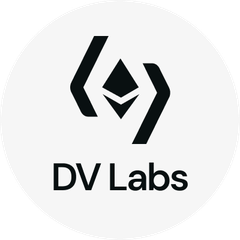
The Obol Association supports the Obol Collective: a community dedicated to scaling Ethereum by strengthening the security, resiliency, and decentralisation of the consensus layer through the development and deployment of distributed validators.
These are the two primary goals of the Obol Collective governance system:
- Capture resistance. Governance plays a key role in securing the anti-capture and censorship resistance of the DV protocol. Governance should a) make it possible for operations to continue without reliance on any individual entity in the longer term b) prevent any one entity or small group of entities from being able to control or censor the protocol or its functions.
- Resource allocation. Governance´s second primary responsibility is to allocate resources effectively to support the Collective’s vision and accrue sustainable value to the Obol Collective. Vision & value may often be in conflict, and allocating resources effectively involves a blend of short-term and long-term thinking. This includes allocation of both the token treasury and protocol revenue.
The Obol Collective is governed by two houses, the Agora and the Obol RAF.
- In the Agora, $OBOL holders are responsible for submitting, deliberating, and voting on various types of Obol Collective governance proposals. They may do so by either voting with their $OBOL tokens directly (after delegating their $OBOL voting power to their own address), or by delegating their $OBOL voting power to an eligible third party. Addresses with delegated $OBOL voting power are called “Delegates”.
- In the Obol RAF, $OBOL tokens Delegates are responsible for allocating funds in the Obol RAF Fund to projects and teams from the Obol Collective that provide value to it through a process called “retroactive funding” (RAF).
Responsibilities:
- Proposal Management
Submission Coordination: Oversee the submission process for all governance proposals to ensure they meet the required standards and formats.
Review Process: Facilitate the initial review and feedback phase, ensuring proposals are accessible for community input.Voting Cycle Management: Manage the transition of proposals from draft to final stages, ensuring they move smoothly through the feedback and voting cycles.Tracking and Reporting: Maintain a transparent and uptodate record of all proposals, their statuses, and outcomes. Provide regular updates to the community.
- Delegate and Senator Management
Onboarding and Training: Develop and implement onboarding processes for new delegates, including educational materials and training sessions.
Support and Engagement: Act as the primary point of contact for delegates, providing support and addressing any issues or concerns.
Performance Monitoring: Monitor the activity and engagement levels of delegates, ensuring active participation and adherence to their roles.
- Process Optimization
Workflow Improvement: Continuously assess and improve governance processes to enhance efficiency and effectiveness.
Tool Integration: Manage the use and integration of governance tools, including the Obol Voting Portal and Obol Retroactive Fund Portal, ensuring they meet the needs of the community.
Documentation: Draft, update, and distribute governance manuals, codes of conduct, and other essential documents.
- Community Engagement
Communication: Regularly communicate with the community about governance activities, proposal statuses, and upcoming votes.
Feedback Mechanisms: Establish and manage channels for community feedback and input, ensuring their voices are heard in the governance process.
Educational Initiatives: Develop and lead educational initiatives to inform the community about governance processes, roles, and responsibilities.
- Compliance and Governance Integrity
Code of Conduct: Draft and enforce a code of conduct for all participants in the governance process, promoting ethical behavior and decision making.
Conflict Resolution: Mediate conflicts and disputes within the governance process, ensuring fair and unbiased resolutions.
Requirements
- DAO Governance Tools Proficiency: Hands-on experience with DAO governance platforms (e.g., Snapshot, Tally, Boardroom) and familiarity with on-chain governance protocols.
- Remote Communication Skills
- Project and Stakeholder Management
- Social Media Coordination: Experience in community engagement and coordination through social media channels (Twitter, Discord, Telegram), particularly within governance contexts.
- Conflict Resolution and Diplomacy
- English Proficiency
Listed in: Web3 Jobs, Ethereum Web3 Jobs, Community Web3 Jobs, Web3 Crypto Jobs, Remote Web3 Jobs.